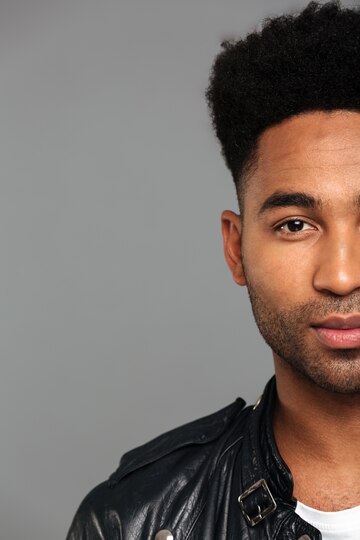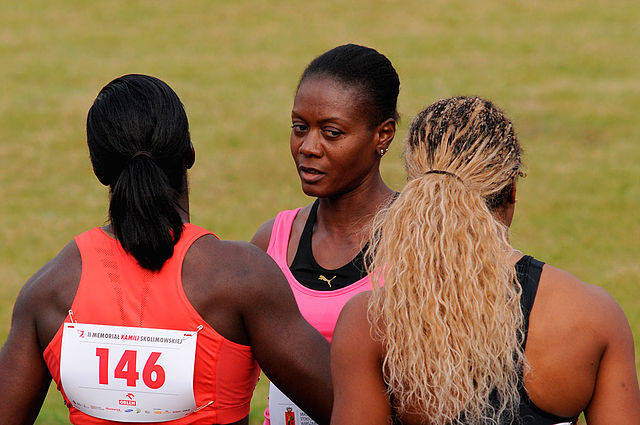Biracial identity can be confusing and lonely, especially if you have one black parent, as you see yourself divided between two races. Most times, you’ll identify as a black person or both, depending on your preferences.
Racial identity gives you a sense of belonging, specifically if you’re black. However, if you’ve multiple racial backgrounds, like black, white, or Asian racial groups, you often find it challenging to identify with them all at once.
Become an insider. Subscribe to our newsletter for more top trending stories like this!
People Also Read: Black Family Thanksgiving: Ways to Survive as a Non-black Reveler
What Is Biracial Identity?
If your parents are of two races, you’re biracial. Thus, if your mom is black and your father is Caucasian, you’re identified as biracial. For example, former President Barack Obama was born to a Kenyan father and a Haitian mother. Naomi Osaka was born to black and Asian parents. Renowned reggae icon Bob Marley was born to a Jamaican mother and an English father. These are biracial individuals you can identify with.
Biracial Identity Development
As a lifelong process, identity development begins in early childhood and continues into adulthood. As a parent to biracial children, the concept helps you answer who your children are; however, your children may find it difficult.
An individual’s identity is complex and consists of several aspects, including cultural, historical, and social contexts that influence identity development.
During the 18th century, the concept of race became particularly prominent in colonial America when different populations were described according to their race.
Back then, race was a yardstick to justify prejudicial attitudes and mistreatment of enslaved individuals. Inferior and negative traits were attributed to the enslaved, and superior traits were attributed to the Europeans to support the subordination of one racial grouping concerning another.
Unfortunately, these perceptions of race did not disappear with the emancipation of slaves or with the civil rights movement.
Many of these views persist to this day, although they’re accidental, subtle, and unnoticeable.
Challenges of a Biracial Identity
Identity Issues
Biracial identity is often an intense struggle for black people. As a person of color, you’ll find yourself struggling to validate your race if you’re of mixed race. You’ll also agree with me that biracial people often find it frustrating to fill out forms that have all other race options except theirs.
You’ll realize that the mixed background sometimes excludes you because “you don’t look like it.” The media sometimes makes things worse with poor narratives that don’t represent biracial identity.
These are real issues; however, you don’t have to feel pressured to align with one when you’re mixed race.
Lack of Community
Often, when there are programs for black people or other races, biracial individuals find it challenging to choose the options available. If you have black/ Asian or American/ Italian parents, for example, you’ll be inconvenienced in choosing one depending on context and not all at once. This lack of community creates a lonely path and sense of belonging, eventually creating a biracial identity crisis.
Become an insider. Subscribe to our newsletter for more top trending stories like this!
Opportunities for Biracial Identity
Exposure to Cultures
One opportunity for a biracial identity is exposure to two or more cultures. You’ll have the opportunity to learn about African heritage or black history if one of your parents is black.
You’ll also get to eat lots of different dishes from two or more cultures. This is a great experience, as you’ll feel like you’re living in multiple worlds without an absolute allegiance to one.
Cultural Fluidity
As a biracial person, you can choose who you want to be. You can only be predominantly progressive if there are no phenotypic barriers. If the factors are involved, you can always identify with what is more socially palatable and more convenient.
As a biracial person, you have access to an array of cultural practices. In a way, you are like a mediator between cultures. You become a collection of everything and anything from your background.
In essence, whenever you can culturally code-switch without undermining your perception, people look up to you as if you’re some phenomenon. That’s like having a coat you can take off if it’s too hot or wear when it’s too cold.
Language Fluidity
Moreover, you have the opportunity to learn three or more languages from your background and the community you grew up in. As you become comfortable in both, you learn to speak languages that will come in handy in the long run.
People Also Read: Biracial Baby Hair Care: What You Ought to Know
Biracial identity can be challenging, especially when living in the US. However, you have many opportunities to navigate and make a fulfilling experience for yourself.
Nearly 80% of consumers visit directories with reviews to find a local business. List your business for free in our exclusive Spotcovery Black-Owned Business Directory.
Spotcovery offers unique and fresh daily content on Black culture, lifestyle, and experiences. We talk about everything black, black people, black-owned and black-owned businesses. We also deliver authentic and relevant content that will inform, inspire and empower you! The future of black media is critical to today’s black experience! Our primary audience includes African Americans, Africans, Afro-Caribbean, and people of African heritage. Black culture is for the culture!
Become an insider. Subscribe to our newsletter for more top trending stories like this!





